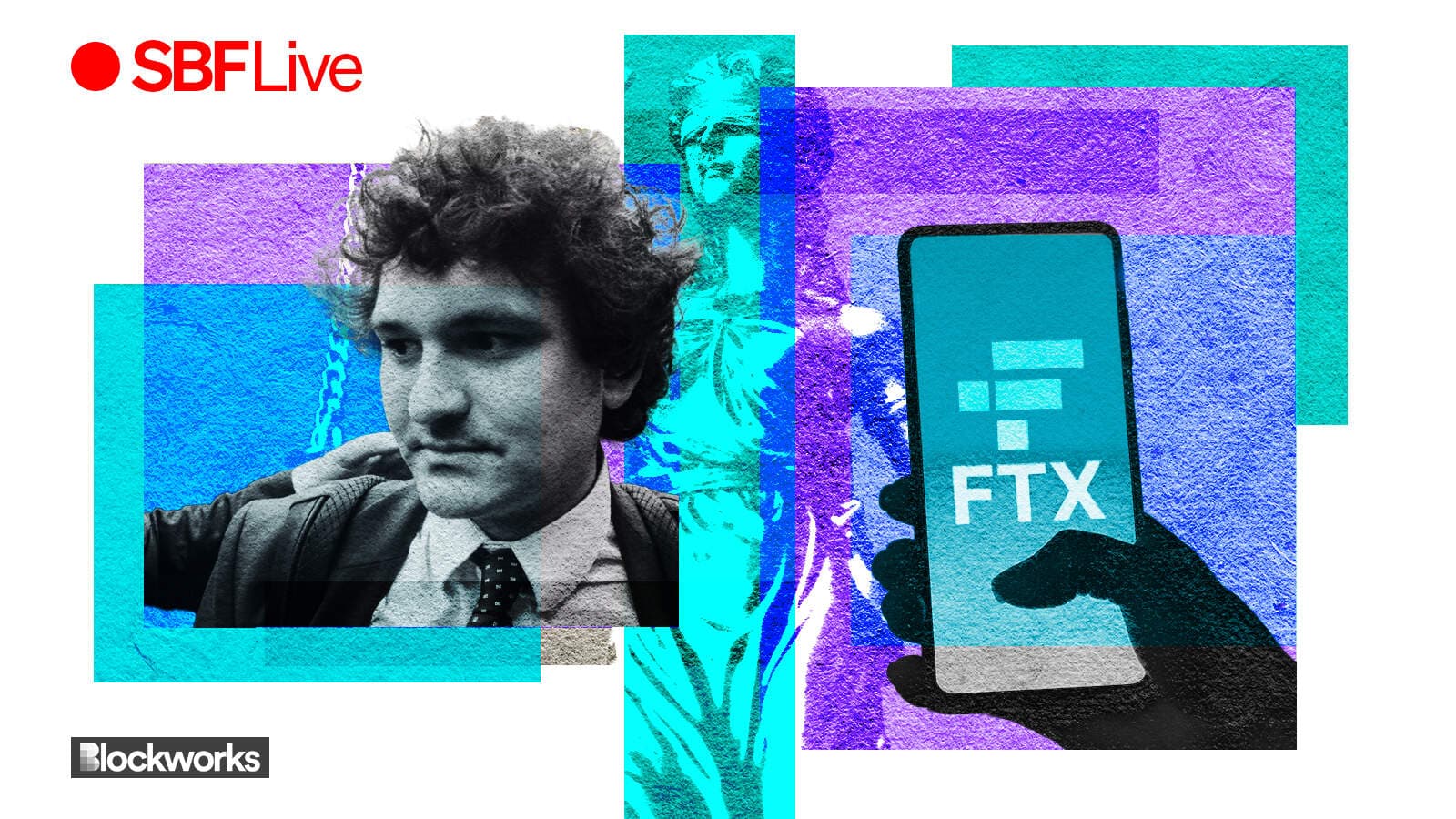Former federal prosecutor says the US has a ‘strong’ case against SBF
Ahead of opening statements Wednesday, a former federal prosecutor predicts Bankman-Fried will claim he didn’t realize he was in the wrong

Artwork by Crystal Le
As the defense and prosecution prepare to give their opening statements in Sam Bannkman-Fried’s criminal trial Wednesday morning, legal experts say the former FTX executive is facing an uphill battle.
Adam Kamenstein, a former federal prosecutor and now partner at Adams, Duerk & Kamenstein, sat down with Blockworks ahead of this week’s trial of former FTX boss Sam Bankman-Fried.
In conversation, Kamenstein parsed through what we can expect over the next six weeks of trial.
Kamenstein served as a federal prosecutor in the criminal division of the U.S. Attorney’s Office in Los Angeles and at the deputy chief of the Office’s Government Fraud, Public Corruption and Civil Rights Section.
BLOCKWORKS: How would you prepare for this trial?
KAMENSTEIN: I expect the defense will center around two main themes. First, SBF will claim misplaced reliance on guidance and counsel from his colleagues — mostly the ones cooperating with prosecutors — to ensure he, and the businesses, were legally compliant.
Second, he will attack the cooperating defendants’ credibility, who are presenting themselves as valuable witnesses for the government in order to receive credit for doing so. The government will want to demonstrate SBF’s knowledge of the wrongfulness of his conduct. It will be significant if prosecutors can show communications with cooperating witnesses and other evidence that demonstrates an effort to conceal illegal activity.
The government wants to keep it simple: SBF represents one thing while doing (and intending to do) another. That is the essence of fraud. The government also wants its narrative to be compelling and interesting for jurors. That’s what keeps them focused and makes it relatable. I would use the cooperators to accomplish this.
On the other hand, the defense will want to make the facts seem over-complicated, such that not even SBF understood them and relied on experts, who misguided him. In this regard, they will draw out the minutiae. They will also attack the credibility of the cooperators.
BLOCKWORKS: Were you surprised Bankman-Fried opted for a jury trial? What are the risks to him having this case play out in court?
KAMENSTEIN: The government has a strong case, and SBF has no value as a cooperating witness because he was the one in charge at FTX. Therefore, it is unlikely that the government would offer him anything favorable in return for a plea. The only benefit SBF would receive for pleading guilty would be for ‘acceptance of responsibility,’ which deducts a couple points from the sentencing guidelines and whatever Judge Kaplan, in his discretion, felt the plea was worth. SBF is facing a very, very long sentence — likely decades. So shaving off a few months, or even a handful of years, by pleading guilty may be immaterial. Pleading guilty turns into a risk/reward analysis that doesn’t always pay out. That said, the trial hasn’t started and SBF received unfavorable pretrial rulings, so a plea is still not out of the question.
Note: It was revealed in court on Tuesday that Bankman-Fried was not offered a plea from the government after his defense team confirmed he would not be interested in negotiations.
BLOCKWORKS: How might this trial impact the future of crypto regulation in the US? Are you expecting more crypto-focused federal charges and litigation?
KAMENSTEIN: The government has yet to promulgate a comprehensive crypto regulatory regime. It has been piecemeal and ad hoc, leaving crypto platforms to have to interpret the application of banking and securities regulations to their industry, which creates gray areas. The effect of this case is that executives of crypto companies will now be more cautious and circumspect. However, this FTX case is hardly one of merely exploiting gray areas and legal ambiguities in the margins. The facts, as reported, tell a classic and well-worn story of financial misconduct and outright fraud.
I expect the SEC and other government agencies are actively investigating other platforms. It’s impossible to tell if that will result in more cases being brought, but typically, when an agency develops investigatory competency in a particular subject area, it looks to leverage and apply that competency as widely as practicable.
Get the news in your inbox. Explore Blockworks newsletters:
- The Breakdown: Decoding crypto and the markets. Daily.
- 0xResearch: Alpha in your inbox. Think like an analyst.






